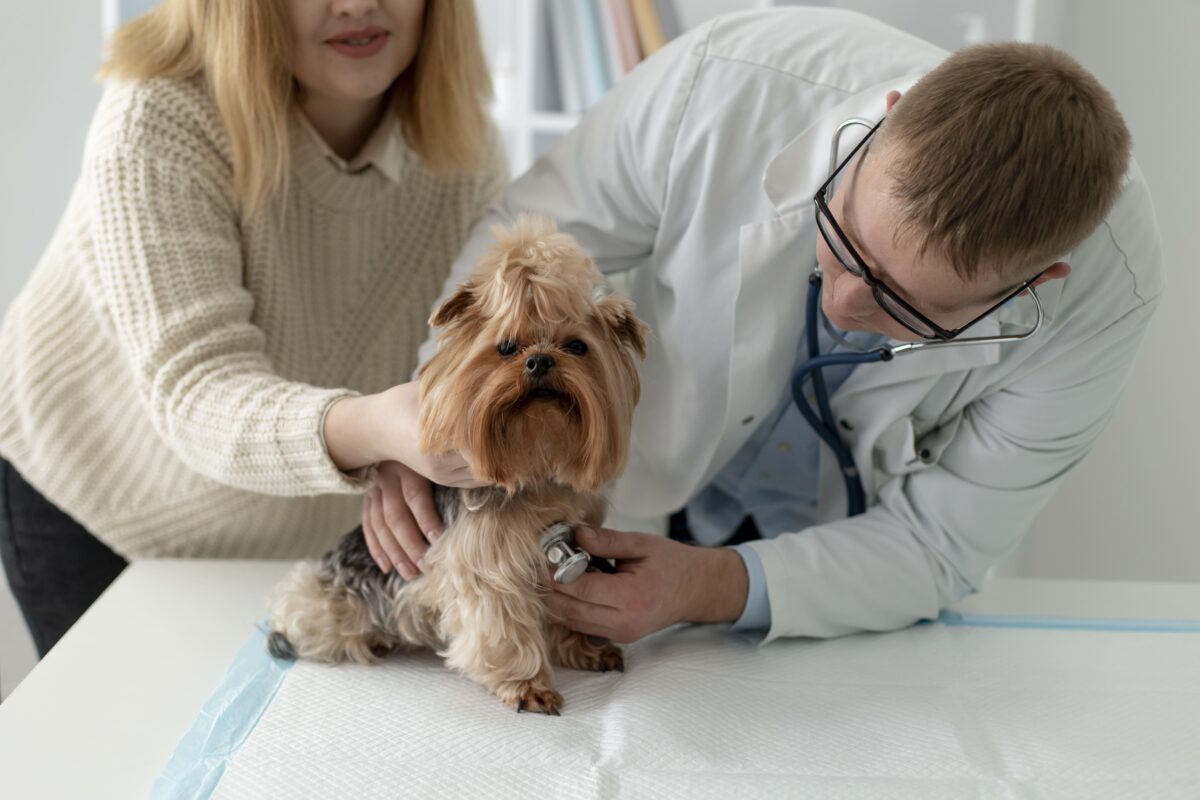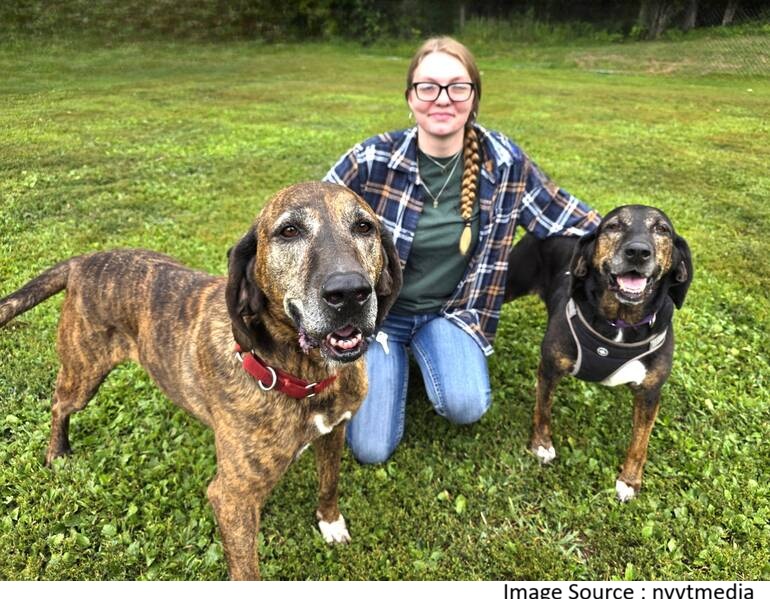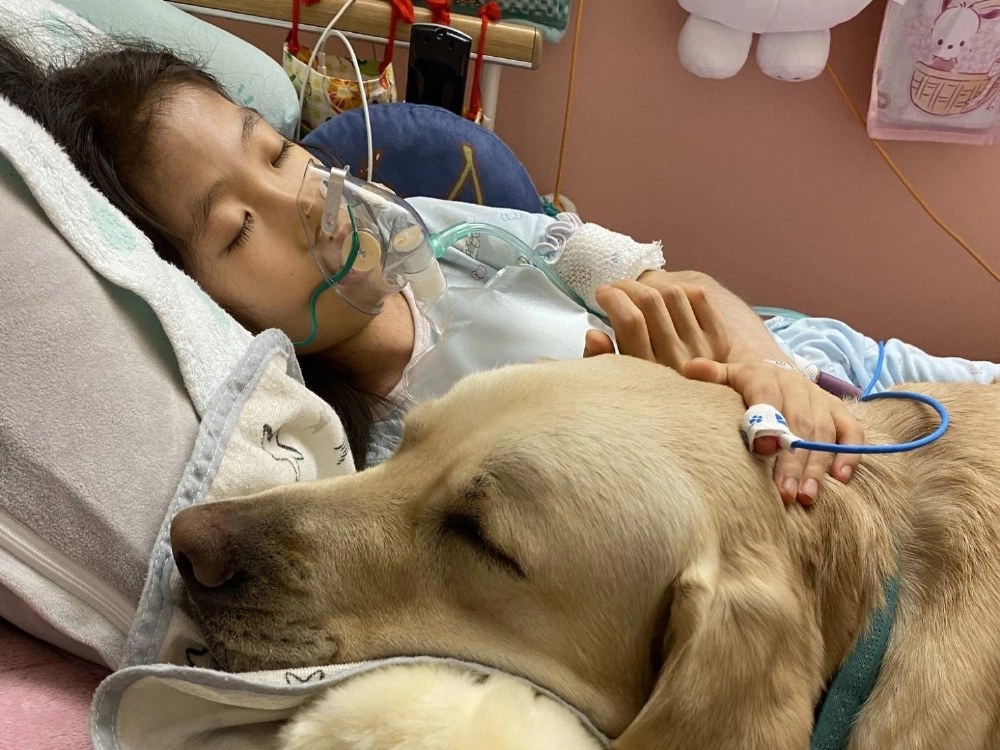Dog Checkups: Year-by-Year Care Guide

Following a proper dog checkups guide, regular vet visits should ideally begin right from puppyhood. Some dog breeds present health hazards, which must be given specific consideration. Caring for your dog’s health will ensure a longer and joyful existence.
Lovely people: Always follow a trusted dog checkups guide—do vet checkups, including inoculations and early detection of any health issues. This preventive measure helps avoid major problems for you and your pet later in life.
A tiny puppy just entered the house, ready for an outdoor adventure, brimming with budding curiosity and energy. Puppy parents often don’t realize how important the first few months are. According to any reliable dog checkups guide, early routine vet visits are crucial to ensure the puppy grows up happy and healthy.
Such vet checks, as emphasized in a good dog checkups guide, help the puppy stay fit and well throughout its development into a healthy adult. From puppyhood onward, dogs require care, treatment, and vigilant checkups.
Using a dog checkups guide ensures you’re on track with every stage of your pet’s life, identifying breed-specific needs and keeping their overall health in check.
Puppy (0-1 year)
Alright, let’s not sugarcoat it—raising a puppy is not just non-stop cuddles and Instagrammable moments. Those little monsters? They’ll have you on a first-name basis with your vet before you can even say “house-trained.” Seriously, it’s a parade of appointments that makes baby checkups look like child’s play. And let’s be honest, you’re probably gonna get peed on more times than you’ll admit.
Alright, here’s the deal: the second you snag that lil’ velvet-eared potato (seriously, 6 to 8 weeks is peak puppy squish), call up the vet. Don’t even wait—just do it. They’ll run through the classics: a gentle squeeze here, a mysterious prod there, maybe even demand a poop sample (good luck collecting that one without gagging). Oh, and brace yourself—they’ll whip out a vaccine list longer than your last grocery receipt.
Thinking it’s just one quick jab and you’re out? Ha! Dream on. We’re talking the whole immunization playlist—rabies, parvo, distemper, adenovirus—all starting right when you bring ‘em home and rolling on till they’re four months old. And if your lifestyle’s all hiking trails and muddy shoes, or your kid thinks dog toys are a food group, expect the vet to toss in a few bonus shots for good measure. Welcome to puppy parenthood, my friend.
Worms, fleas, ticks—basically the unholy trinity of pet nightmares. Unless you’re cool with your dog turning your living room into their personal scratching post, or discovering worm doodles on your carpet (barf), you gotta stay on top of those dewormers and flea meds. Skipping out? Yeah, that’s just asking for mayhem.
Now, the ol’ snip-snip talk. Most vets will throw out something like “six months to a year” for spaying or neutering. It’s not like your dog turns into a pumpkin if you miss the date, but I wouldn’t drag it out forever unless you’re dying to host a puppy party in your living room. Spoiler: it’s messy.
And vet trips? Oh boy. Strap in, because you’re gonna be hitting the clinic every few weeks at first, tossing treats like you’re bribing both your dog and yourself to survive the ordeal. But stick with it—a few appointments down and life chills out. It’s a bit of a slog, sure, but totally pays off. Pretty soon, you’ll have a healthy, stoked pup who thinks you’re some kind of legend. Or at the very least, the magical treat dispenser.
How often do you gotta drag your little furball to the vet? Buckle up, ‘cause those early months are basically a whirlwind—like, don’t blink or you’ll miss a shot. Seriously, you’ll be shuffling in every three weeks or so ‘til your pup hits four or five months. Think pediatrician visits but with less crying (from the dog, at least) and a ton more slobber. After that? Just do whatever your vet says. Trust me, they’ve witnessed more puppy meltdowns than a kindergarten teacher hopped up on espresso.
Shots? Oh yeah, no skipping out on those. The folks at CGS Hospital in Gurugram aren’t messing around: your little beast needs the whole lineup—rabies, parvo, hepatitis, parainfluenza, distemper. I mean, it kind of sounds like your dog’s gearing up for a biohazard movie, but hey, better that than ending up as Patient Zero in the dog park, yeah?
Ugh, worms. The bane of every dog parent’s existence, am I right? These gross little freeloaders just barge in like they own the place—no manners, no shame. Get used to being besties with dewormer; you’ll be dosing your pup every two weeks till they hit three months (yeah, it’s that often, sorry). Then you get a tiny break—once a month until they turn six months old. After that, you can finally catch your breath and just do it every three months. Congrats, you’ve made it to the exclusive dog parent club! Perks include: lukewarm coffee, a mountain of poop bags you’ll find in every pocket, and more vet visits than you ever thought possible. Welcome to the circus!
Your dog’s health requirements change as they get older, but routine examinations are still crucial.
Annual health check: Consists of a comprehensive physical examination to track weight, heart, lungs, and general health.
Vaccinations: Depending on the type, these can be given annually or every three years.
Prevention of parasites: It is essential to prevent fleas, ticks, and heartworms all year long.
Dental care: To avoid gum disease and plaque accumulation, routine dental examinations are crucial.
Diet and weight monitoring: Talk about eating right and exercising to keep your weight in check.
Frequency of visits: Once a year for immunizations and regular examinations.
For adult dogs, CGS Hospital also recommends administering the DHPP and rabies vaccinations once every three years after the initial booster in the first year.
Adult dog (3-7 years)
Regular examinations aid in identifying possible problems early, particularly as your dog gets closer to middle age.
Annual exam: To keep an eye on general health, do yearly physical examinations.
Vaccinations: Maintain regular vaccines based on vet recommendations.
Blood work and urinalysis: Routine tests can help detect early illness indications beginning at age 5-7.
Dental care: To preserve dental health, get yearly cleanings.
Frequency of visits: Once a year, with blood tests and urinalysis starting around 5-7 years old.
Senior dog (7+ years)
In order to monitor age-related diseases, senior dogs require more regular veterinary appointments.
Twice-yearly exams: During these visits, a comprehensive physical examination is performed to look for symptoms of ageing.
Blood work and urinalysis: Essential to screen for age-related conditions.
X-rays or ultrasounds: Recommended if signs of joint problems occur.
Dental care: Continue regular exams and cleanings to maintain oral health.
Nutritional adjustments: Talk about dietary modifications to accommodate aging requirements.
Frequency of visits: Twice a year.
Special considerations by breed and health status
Some breeds may have unique health risks that require specialised checkups.
Large breeds: May require screenings for hip dysplasia or heart disease.
Small breeds: Often need extra dental care.
Chronic conditions: Dogs with chronic health issues may need more frequent visits and specific tests.
Look, your furball isn’t gonna stay healthy just on belly rubs and treats—regular vet checkups are a must, no matter how much they hate the car ride. Seriously, talk to your vet about what your pup actually needs (because every dog’s a special snowflake, apparently), and don’t wait around if something weird pops up. Trust me, a little effort now means way more fetch sessions and sloppy kisses down the road.





